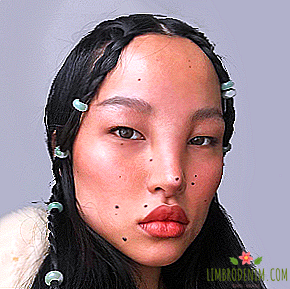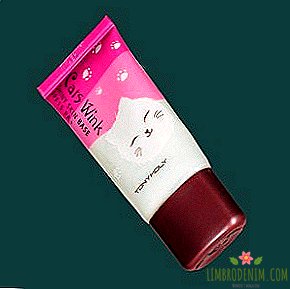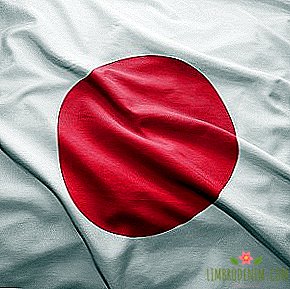From hate to hate: How I live with borderline personality disorder
Borderline personality disorder (PRL) - mental state, one of the main signs of which is instability: emotional instability, high anxiety, vague ideas about what a person is and what he would like to become. There are usually nine signs of borderline personality disorder (although there are other classifications): sharp and frequent mood swings, a strong fear of loneliness, a tendency to unstable relationships and self-harm, dependence on something or destructive behavior like frequent sex with different partners without contraception . For the diagnosis of the "border guard", or borderline, must find at least five signs.
Not only is PRL difficult to detect - in Russia there is no official diagnosis of “borderline personality disorder”; often an "emotionally unstable personality disorder" is put in its place. Natalia Kotova told us about life with this state (the name was changed at the request of the heroine).

Bordeliners (that is, those who have "borderline personality disorder") are all very different, but over the years of treatment, I learned that we are united by self-hatred and, as a result, self-destruction. This installation comes from the person who is closest to the child in the first years or even months of his life.
My mother has a narcissistic disorder - I learned about this quite recently. Around her was like a circle of followers - she was engaged in esotericism, alternative pedagogy, and she firmly dominated others. She had some kind of supernatural influence on everyone, they were afraid of her. There are many such people, just from the outside, they seem to be charming darlings with "quirks", no more - although this family can create real hell, and children like me can constantly think about suicide.
My mother tortured me mostly psychologically, I find it difficult to find the right words to describe it. Virtually all people with PRL are abused - psychologically, physically, or sexually - as children, but many do not even realize this, because abyusers masterfully manipulate. I also did not realize the violence and looked like a happy child. However, it was forbidden to be a child: the mother thought that children were disgusting, and I was supposed to behave like an adult. I was ashamed of the fact that I have such a wonderful mom, and I am me.
Dependence on alcohol, drugs, food or sex is also one of the common features of borderline personality disorder. Of course, this aggravates the condition: even a bottle of beer for me could cause a week-long spree.
I felt a horror of animals, because of which I thought that I should stop being myself - after all, people like me would definitely hate. Burning and maddening hatred pushes the "border guards" to self-harm and suicide: they believe that their duty is to destroy themselves. Already at the age of five I spat into mirrors, tore up my photos and stuck pins in them. Closer to ten years, she cut her hands. Have you noticed something close? Probably not. I was allowed to express only a certain range of emotions, above all - gratitude.
At sixteen, I decided that I had enough scandals, and left the house. At first she lived with friends, a year later she rented a room. But the pain has not gone away. Then I tried alcohol and drugs and immediately sat down. Dependence on alcohol, drugs, food or sex is also one of the common features of borderline personality disorder. Of course, this aggravates the state: even a bottle of beer for me could cause a week-long spree. In a state of intoxication, I could walk to another city, trying to escape from myself. I do not know how I managed to go to work and I was not fired.
Despite the fact that I had a house, I often huddled at train stations with homeless people: the “border guard” sees no reason to take care of yourself, eat normally, sleep in a clean bed. At the same time I was never beaten, raped, robbed, and even the police were kind to me. Perhaps I was so lucky, because every minute I tried to please people, put their interests first, took care of their comfort, not their own. I wanted society to forgive me. Sometimes in a desperate condition, under alcohol, when I slapped my face and repeated: “Sorry!” - Drinking companions, relatives, friends, colleagues answered me, "Forgive yourself," "Love yourself." But this approach made me puzzled.

At that moment I could not even answer the simple question: "What do you like from food?" In response, I just frantically beat myself on the face or ran under any pretext so as not to make a bad impression. Outside, I endured an artificial image - and presented it to a psychologist with the request: "I am constantly in a bad way. Do something." Well, how could he help?
Shortly afterwards, I saw an article about martial arts in the magazine “Hooligan” and came to the training session. It was love at first sight: I began to train every day. I began to respect myself a little, I was able to gain weight, diminished due to drug use and the fact that I simply did not eat anything. Before that, I weighed forty-four kilograms with a height of seventy-five centimeters, and I liked it because I physically wanted to disappear.
After some time, I found the strength to go to another country - Greece. It seemed to me that this way I could forget about drugs - but after my arrival I lasted only a week. But I quickly found a place to live and work: a new social circle appeared, I continued to train, began to learn Japanese. But she was still afraid of people: for close communication, she subconsciously chose borderlineers or people with low self-esteem. Addiction was saved from feelings of loneliness and inferiority - there would be no alcohol, there would be other ways.
My mother did not know about my problems, and would not worry about it. I talked with her on the phone, sometimes she came to me or I came to her, but every conversation resulted in a scandal lasting many hours. Because of this, coupled with drugs by the age of twenty-five, I lost my permanent job and quit sports. Self-harm has become uncontrollable. All the time I went with a broken face: now one, then the other eye did not open. She worked as a cleaner for the lowest salary in the city, despite the fact that she knew several languages, including classical Japanese.
After trying to commit suicide, I went to a psychiatric clinic, where I was finally diagnosed with borderline personality disorder. He is accompanied by others - for example, narcissistic, antisocial, hysterical, schizoid. My “bonuses” are post-traumatic stress disorder and clinical depression. I do not lie all day, and frantically trying to become more productive, but at the same time I want to die from anguish.
I think my recovery began when I stopped taking the medicine and began to visit groups of "anonymous drug addicts and alcoholics." But the main role was played by communication on the Internet - it turned out that it was easier for me to trust people there
I spent about half a year in the hospital, I was in a closed ward. It has a clean and friendly atmosphere, only the food is disgusting. Chambers are designed for one or two people. Mobile phones can not be used: relatives are allowed to call only to a stationary device with the permission of a doctor. Once an hour you can go out into the yard to smoke. We played chess, ping-pong, read books, just talked - communicating with those who look like you and sharing experiences are invaluable.
The doctor takes patients only twenty minutes a week. But I was prescribed a huge amount of drugs, from which I slept all day, my diction and motility were disturbed, my weight rapidly increased and my periods disappeared. If you quit them abruptly, you can have an epileptic seizure - this is how the withdrawal syndrome works. What is the actual treatment in the hospital, in addition to pills, is a mystery to all. When I was discharged, I was also prescribed horse doses of drugs for depression, impulsiveness, anxiety. They plunged me into a vegetable state: when I didn’t sleep, I was already seriously planning suicide.
I think my recovery began when I stopped taking the medicine and began to visit groups of "anonymous drug addicts and alcoholics." But the main role was played by communication on the Internet - it turned out that it was easier for me to trust people there. Making contact with other patients who are further advanced in treatment is extremely important: I saw how they learn not to lie to themselves, analyze thoughts and feelings, stop being afraid of themselves and others, and as a result stop taking psychoactive substances.
The first year after that went just to "cleanse." I used kilometers in a text editor, I sat at a computer all day long. She shared with others and read other people's revelations. For the first time I felt that I was useful, I was able to accept what I had always fled from: love me. I made friends. I began to fall asleep normally and wake up without a sense of fear. A feeling of impending catastrophe began to disappear. One day I realized: whatever happens to me, I can no longer use. Six years have passed since then.

Recently, a cognitive-behavioral therapy program was opened in Greece. The number of places is limited, and in order to get into it, you need a disability on PRL. Now I am going through it, but, frankly, I am not enthusiastic - I am used to more dynamic work in my communities. In addition, therapies do not work through individual aspects of the problem, such as a distorted value system, and I need this most of all. Classes are free, so while I continue to walk. I will finish - it will be seen if they have given anything but a tick of experience.
The state is leveling off slowly. I allowed myself to admit that once I was a child, contrary to what happened in my childhood, it helped me grow up, take responsibility for my emotions, but at the same time not burden myself with responsibility for everything that happens in the world. I entered the university on the specialty "Japanese philology". Despite the fact that I already know the language and much of the history of culture, sometimes I do not come to the exams because I am afraid not to pass. Every six months, not more often, the state of panic and auto-aggression returns, but now I know that you just need to wait it out and it will pass. The main thing is to track this state and not to take any decisions while in it. When it starts to seem to me that I have done something terrible and now they will begin to hate me, I just remember that this is a typical manifestation of my illness, and I count up to a hundred.
Border disorder is a social trauma associated with a violation of emotional "metabolism". All forces go to produce the impression of a "healthy" person. I get very tired of this, and at times it’s harder for me to organize my time. I manage to behave naturally, but to relax in public and not to wait for a dirty trick from my illness is not. As a result, depression, procrastination occur, I need a lot of time to unload the brain. And since the “border guards” are perfectionists, I don’t allow myself to rest and instead of watching a movie in the evening, I can, for example, take apart the nightstand for two days.
Fear of being rejected makes you avoid close relationships. At the same time, I really do not like to be alone, terribly worried when a man does not write for a long time and does not call
Fear of being rejected makes you avoid close relationships. In this case, I really do not like to be alone, terribly worried when a man does not write for a long time and does not call. I do not appreciate myself, but men choose decent and caring, and I also love to take care of myself. With all of my former friendships. Now I have been alone for six months. The last relationship lasted for seven years and became obsolete: I realized that I no longer loved him, and decided to try being alone. Not very much so far, but I am not so unhappy as to enter into a strong relationship with someone simply because I am fine with him.
Doctors who track my condition insist on learning how to express negative emotions. But I’m not ready for this yet, and when I feel bad, I just turn off the phone and don’t let anyone near me. True, recently had to break this rule. My roommate, who knows about my problem, heard me crying in the room, made me open the door, hugged me. I managed to accept support, and she managed to convince me that there is nothing wrong with that. This is also a breakthrough.
Years later, the wounds are still healing. I study my condition under a microscope, I eat and sleep strictly according to the regimen, I do not communicate with toxic people, I suppress the intense feelings that may arise in response to any external stimulus. Once again I am engaged in martial arts, I broke the connection with my mother and restored the relationship with my father and grandmothers - they live far away, but I communicate with everyone on Skype every day. Three times a week, I visit communities dedicated to injury, addiction and violence. Communication brings me great joy. I am learning to take a good attitude and to endure the bad.
It takes years to rearrange and acquire healthy reactions. Therefore, any action that I perform is similar to repairing a broken robot. I take every detail of perception out of my consciousness, wipe it with a cloth, check whether it is intact, and put it in place. It causes both pride and humility - and I am ready to live this way for the rest of my life: in return, I get the right to be in society without being afraid of it. And I don’t need anything else.
Images:annagolant - stock.adobe.com (1, 2, 3)





